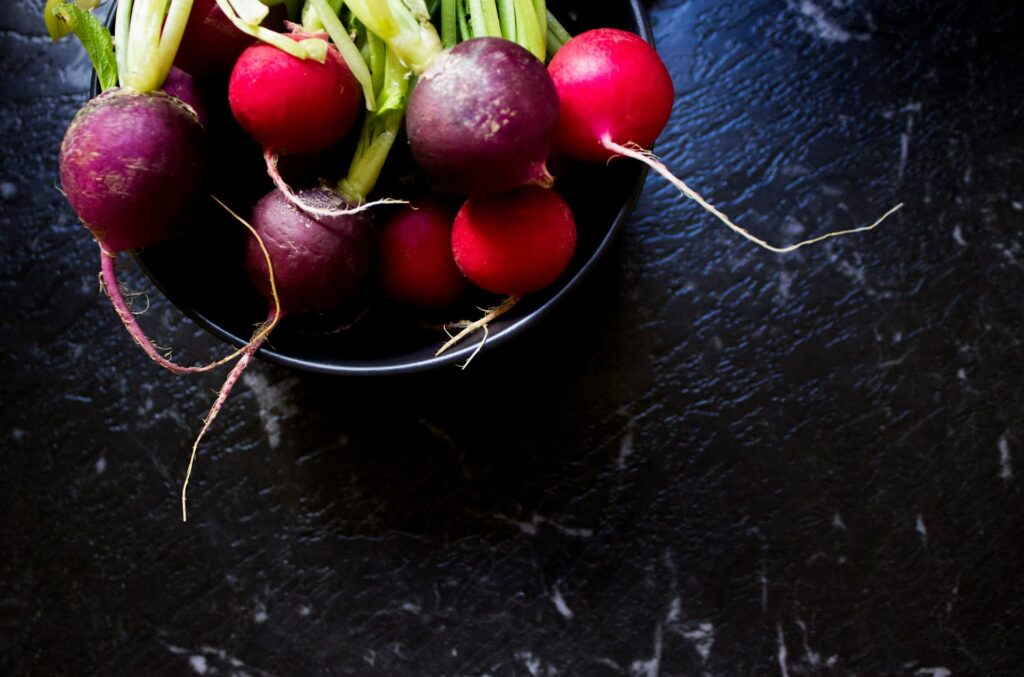
Radishes are a root vegetable and belong to the mustard/Brassicaceae family and very good for you. The most common in a grocery store is red with a white center, but then can have a variety of colors on the outside — purple, black, yellow or pink. Even the inside can look different.
Like many foods, radishes have a long history of medicinal uses. For instance, they used to be used for:
- Digestive issues
- Gut pain
- Respiratory issues
And of course, there are several different types of radishes:
- Black radishes — big and ball shaped, with a rough, black skin and white flesh
- Daikon — a Japanese or Asian radish
- Red — the common red skinned, white flesh, types: Cherry Belle and Early Scarlet Globe are the two most common
- Watermelon — heirloom daikon radishes — white and green with a magenta flesh
Other types include:
- French breakfast — long and pink
- Sakurajima daikon — largest in the world
- Easter egg — various colors but taste like a red
- Pink lady slippers — oblong with a pink skin and white flesh
Their nutrient profile includes:
- Fiber
- Minerals: calcium, iron, manganese, potassium
- Vitamins: B2 & 3, 6, 9 & C
- Anthocyanins — like good chocolate
- Anti oxidant
- CoQ10 — that’s important as an antioxidant and in the mitochondrial production of fuel/ATP
- Dyrosinase
- Glucosinolate
- isothiocyanate
- The daikon radish also has nitric oxide (vasodilator) and trigonelline (vascular health and prevents type 2 diabetes)
Consequently, radishes work to:
- Anti cancer — folic acid and anthocyanins, Dyrosinase, glucosinolate, and isothiocyanate
- Anti diabetic — provoke sugar balance through hormone-induced glucose hemostasis
- Support eye health — Vit C
- Immune functioning — Vit C
- Improve liver functioning
- The natural nitrates improve blood flow
- Good for skin issues
- Great for the kidneys and the whole urinary tract, preventing both infections and stones
Whether you just eat them as a snack or put them in salads they are great to include in your healthy diet.
